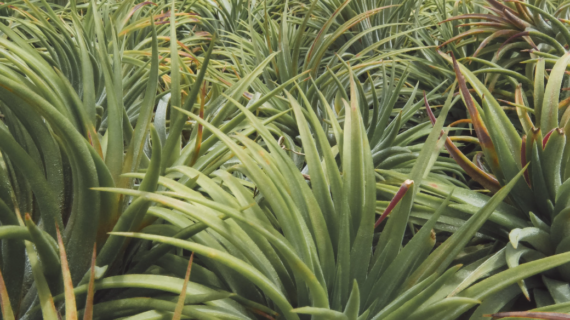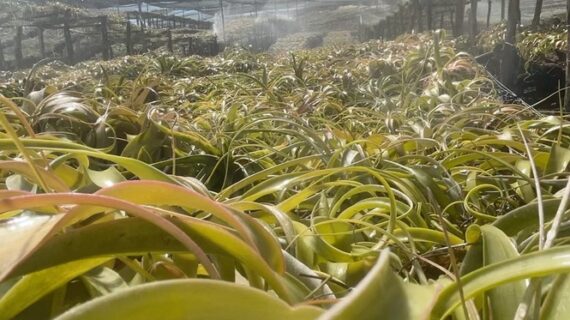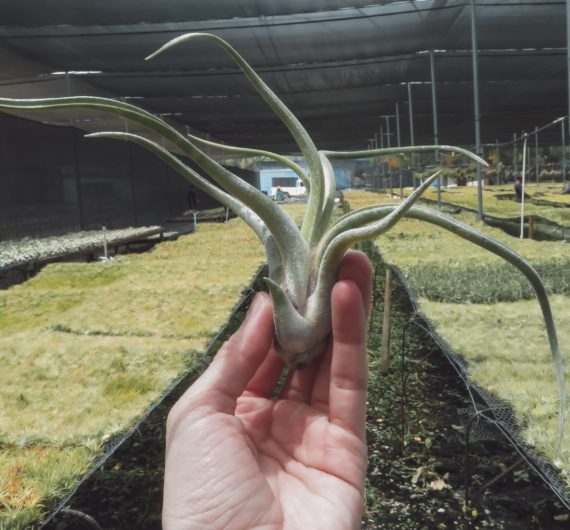
Air plants, scientifically known as Tillandsia, have become popular in recent years for their unique growing habits and minimal care requirements. These fascinating plants don’t need soil to survive, making them a low-maintenance and eco-friendly choice for indoor and outdoor decor. Beyond their beauty and adaptability, air plants offer a range of environmental benefits that contribute to a healthier, more sustainable planet. Let’s explore how incorporating air plants into your home or office can be a step towards greener living.
Water Conservation

One of the most significant environmental benefits of air plants is their minimal water requirement. Unlike traditional houseplants, which often need regular and substantial watering, air plants thrive on much less.
Low Water Needs
Air plants absorb water directly through their leaves, using specialized structures called trichomes. These tiny, hair-like structures capture moisture from the air, enabling Tillandsia to live in environments where soil and water are scarce. Typically, air plants need only a weekly soak or occasional misting, depending on the humidity of their environment.
Ideal for Drought-Prone Regions
In areas where water conservation is crucial, air plants are an excellent alternative to traditional houseplants. They require far less water, helping to reduce overall water consumption in your home or office. For anyone looking to reduce their ecological footprint, choosing plants with low water needs like Tillandsia is a practical step toward sustainability.
No Soil Needed: Reduced Carbon Footprint

Air plants are epiphytes, meaning they don’t require soil to grow. This unique feature offers a variety of environmental benefits.
Fewer Resources Used
Growing plants in soil often requires fertilizers, pesticides, and regular watering. These practices can be resource-intensive, contributing to environmental degradation over time. Because air plants don’t need soil, they eliminate the need for fertilizers, pesticides, and soil amendments, reducing the demand for these resources.
Reducing Carbon Emissions
Soil harvesting, transportation, and preparation for commercial use release significant carbon emissions into the atmosphere. By eliminating the need for soil, air plants inherently reduce the carbon footprint associated with traditional gardening. They can be placed in a wide variety of non-soil-based displays, from hanging terrariums to driftwood mounts, making them a versatile and sustainable decor option.
Air Purification and Improved Indoor Air Quality
Air plants, like many other houseplants, can improve indoor air quality by absorbing carbon dioxide and releasing oxygen through photosynthesis. But air plants go beyond just oxygenating your space.
Absorbing Pollutants
Air plants’ trichomes can also capture dust particles, pollutants, and certain volatile organic compounds (VOCs) from the air. VOCs are commonly found in household products like cleaning agents, paints, and furniture. By absorbing some of these harmful chemicals, air plants can help purify the air in your home, promoting a healthier indoor environment.
Compact Air Purifiers
Because air plants don’t require soil and are highly adaptable, they can be placed in small spaces like bathrooms, kitchens, or desks where other plants might not fit. By adding air plants throughout your home, you can create multiple “mini air purifiers” that work to improve air quality across different rooms.
Air plants are more than just beautiful additions to your home; they’re also a great choice for those looking to live a more sustainable lifestyle. From conserving water to improving indoor air quality and supporting biodiversity, Tillandsia offers numerous environmental benefits that align with eco-friendly practices. By choosing air plants, you’re not only bringing a unique aesthetic to your space but also contributing to a healthier planet.